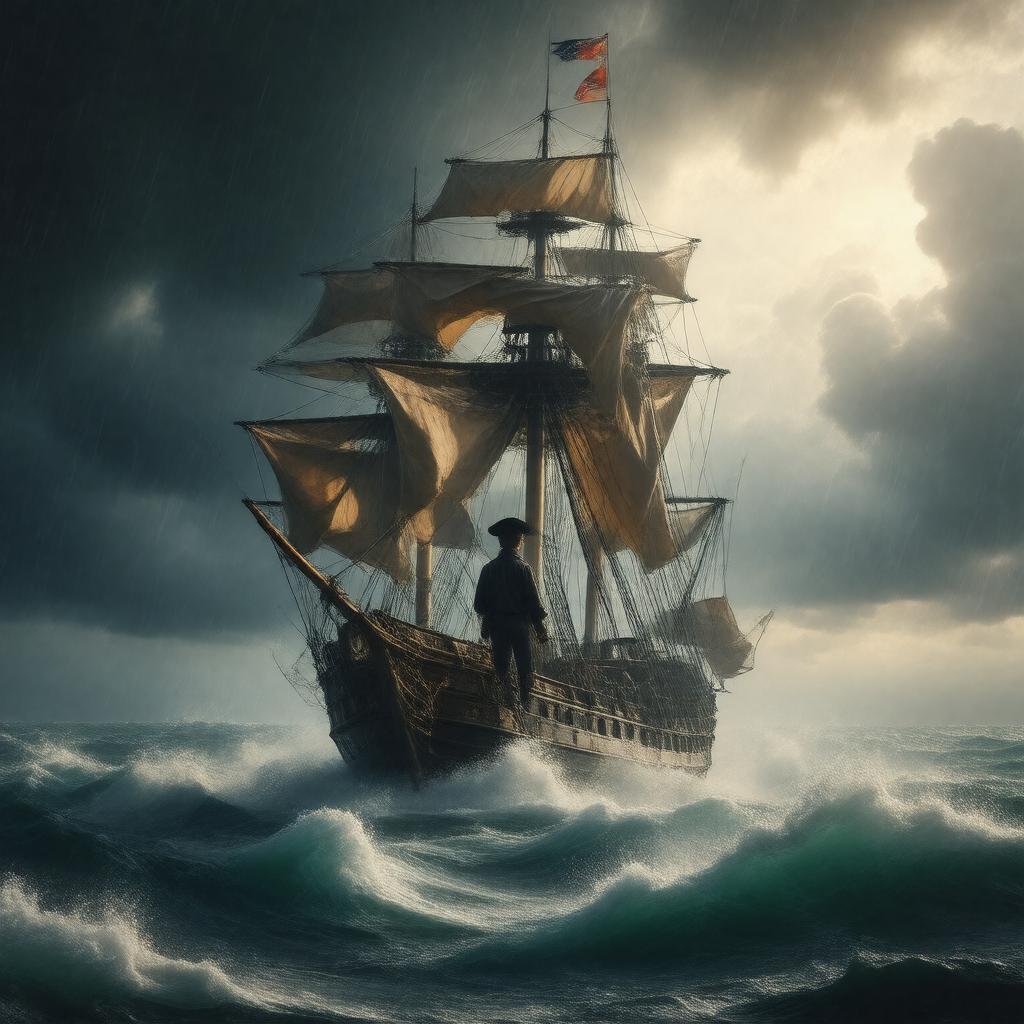Prompt
Generate an image of a 19th-century British Royal Navy warship sailing on a stormy sea, with a young sailor, Billy Budd, standing at the bow, symbolizing innocence and morality, in a realistic and dramatic style, reminiscent of 19th-century Romanticism, with the tag "A scene from Herman Melville's novel Billy Budd, set in 1797".

